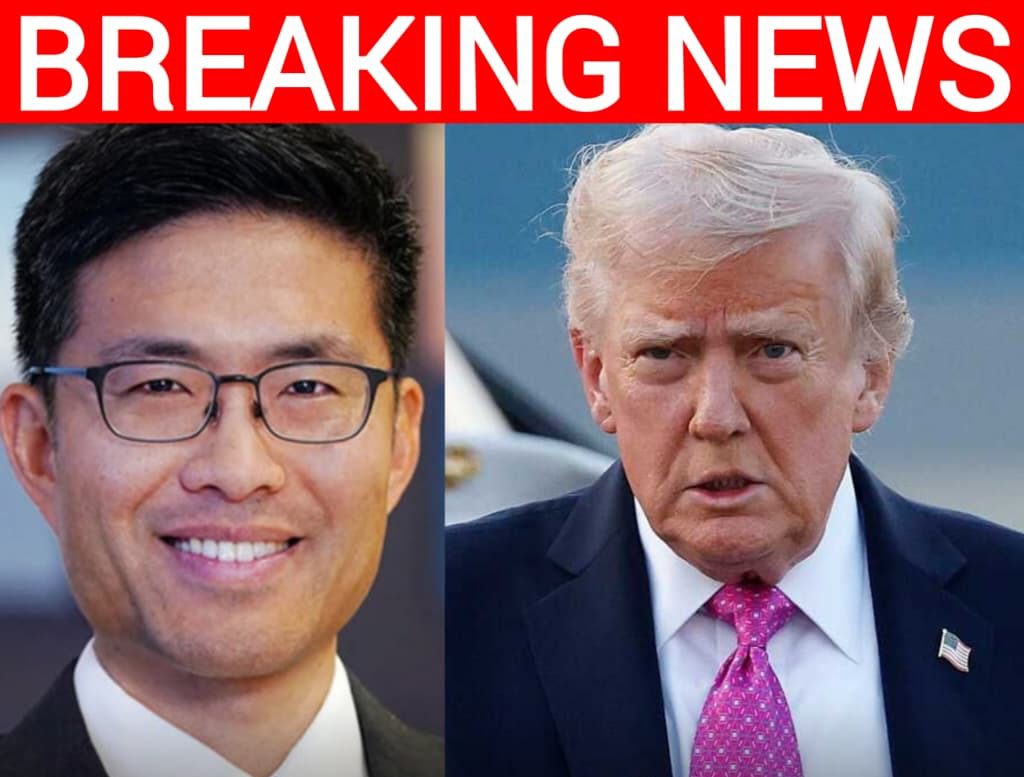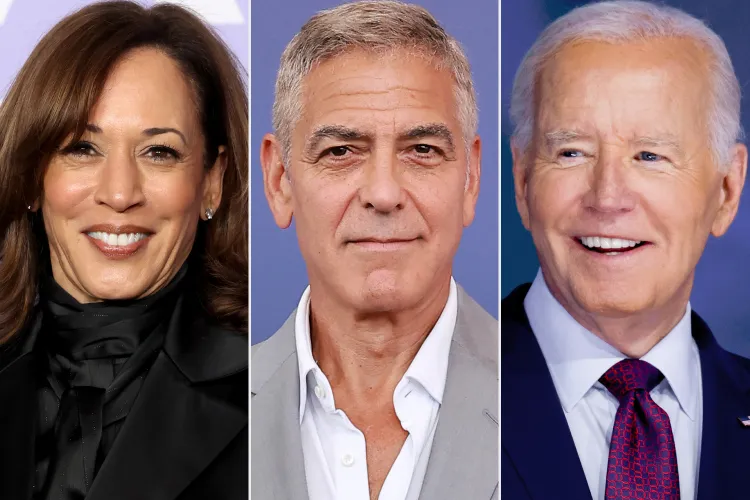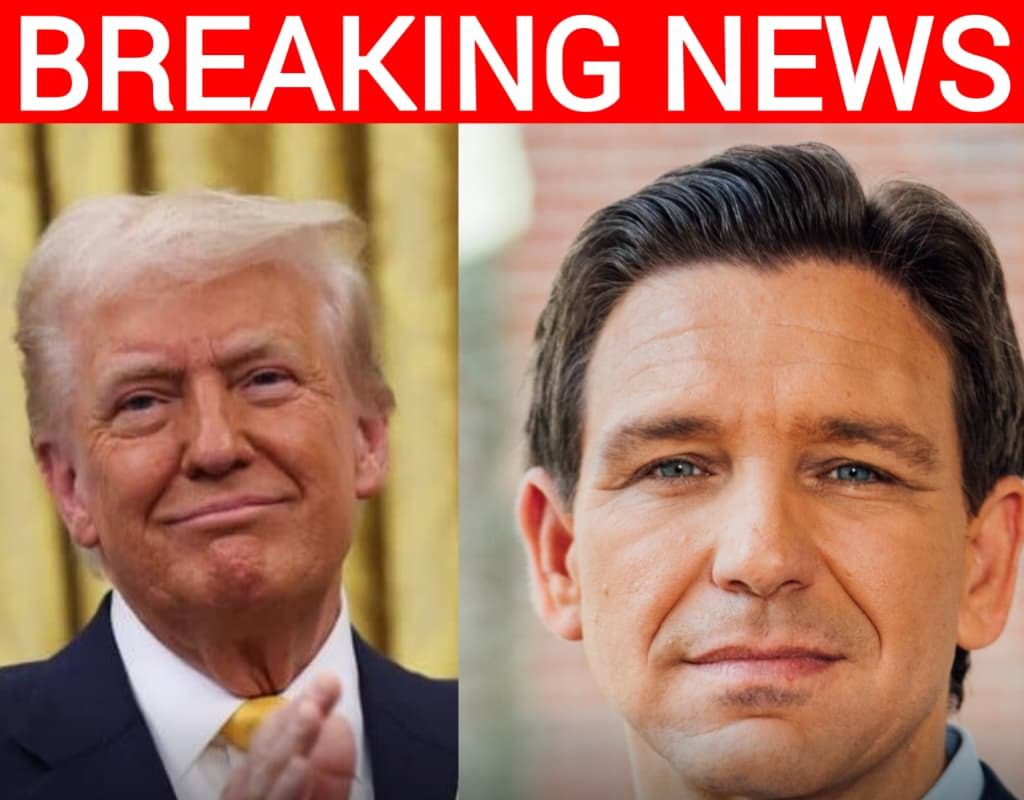US Senate Moves Forward on President Trump’s Pick Eric Tung for the 9th Circuit Court of Appeals — Marking a Major Conservative Victory in the Fight to End Judicial Activism
The United States Senate has taken another major step toward reshaping America’s federal judiciary — advancing President Donald Trump’s nominee, Eric Chunyee Tung, to serve as a U.S. Circuit Judge for the 9th Circuit Court of Appeals. The vote — a narrow 51-46 — reflected the deep partisan divide surrounding this nomination, but the outcome was clear: another Trump pick is one step closer to taking the bench on one of the most powerful and controversial courts in the nation.
Eric Tung’s rise to this moment reflects a blend of impeccable credentials and ideological clarity. A Yale graduate with a law degree from the University of Chicago, Tung has spent his career immersed in appellate law and constitutional interpretation. He clerked for conservative icons Antonin Scalia and Neil Gorsuch before joining the law firm Jones Day, where he built a reputation for precise, disciplined arguments and a commitment to textualism — the belief that judges should interpret the Constitution and laws exactly as written, not according to shifting political trends.

That judicial philosophy was on full display during his Senate confirmation hearings in September 2025, where Tung defended his views before the Judiciary Committee. When asked how he would approach controversial cases on abortion, immigration, or environmental regulation — topics the 9th Circuit frequently handles — Tung answered calmly: “A judge’s role is to apply the law as it is written, not as he wishes it to be. The Constitution doesn’t change because culture does.”
His words resonated with conservatives who have long accused the 9th Circuit of being “activist,” especially for rulings that blocked immigration reforms, expanded environmental restrictions, or struck down state-level gun laws. For decades, the court has been viewed as the most liberal in the country, often clashing with Republican administrations. Now, with President Trump’s continued reshaping of the bench, the balance of power in that court is shifting.
This nomination, however, was not without controversy. Democrats on the committee grilled Tung over writings from his college years, where he made critical comments about radical feminism and modern identity politics. He acknowledged those statements as youthful opinion pieces but stood firm on his core belief in originalism — interpreting the Constitution as its framers intended. “My personal views are irrelevant,” he told lawmakers. “My duty as a judge is to the law, not to ideology.”

For supporters, Tung represents exactly the kind of judge the judiciary needs — smart, disciplined, principled, and unwilling to legislate from the bench. For critics, his nomination is yet another example of what they call “Trump’s court-packing,” aimed at creating a judiciary that will uphold conservative causes for decades. But even they concede that Tung’s legal qualifications are impeccable, and his demeanor throughout the process won over several undecided senators who initially hesitated to support him.
The Ninth Circuit’s influence cannot be overstated. Covering nine western states — including California, Washington, Oregon, and Arizona — it handles cases that affect millions of Americans. Its decisions shape national policy on immigration, technology, environmental law, and civil rights. For conservatives, the court has long symbolized judicial overreach. For liberals, it has been a safeguard against executive power. That is what makes Tung’s confirmation so symbolic: it’s not just about one judge, but about recalibrating the ideological compass of a court that has often stood in opposition to Republican governance.

The push for Tung’s confirmation is also part of a broader pattern. Since returning to office, President Trump has made judicial reform one of his top priorities, seeing it as the most lasting legacy of his administration. With the Senate now firmly aligned under Republican leadership, Trump’s team has been working aggressively to fill federal vacancies — prioritizing judges who share his constitutional philosophy and his belief in strong national borders, individual freedoms, and limited government.
Tung’s appointment would mark another major victory in that mission. Once confirmed, he will replace Judge Sandra Ikuta, who recently took senior status, creating a rare opening on a court that handles more cases than any other appellate circuit in the nation. His addition would bring the 9th Circuit closer to ideological balance, after years in which its rulings leaned left by wide margins.
Conservative legal groups have hailed Tung’s confirmation as a win for judicial integrity. The Federalist Society praised his “intellectual honesty and commitment to constitutional order,” calling him “a steady hand who will strengthen faith in the judiciary.” Pro-Trump lawmakers echoed that sentiment, describing him as “the kind of judge who follows the Constitution, not the crowd.”
Democrats, meanwhile, warned that Tung’s confirmation could roll back decades of progress on civil rights, environmental protections, and reproductive freedoms. But even some moderates acknowledged that Trump’s nominees have tended to be exceptionally well-qualified, strategically chosen to withstand partisan attacks while reshaping the courts from within.

Beyond the politics, Eric Tung’s nomination carries a personal story of resilience and achievement. The son of immigrants, he rose from humble beginnings to reach the top of his profession. Colleagues describe him as deeply private, disciplined, and fiercely loyal to the law. Those who have worked with him say he avoids political debates entirely, focusing instead on the text, the facts, and the precedent. That temperament — calm under fire, methodical in reasoning — is what many senators cited as the deciding factor in their support.
For President Trump, the Senate’s vote is another validation of his strategy. From the Supreme Court down to the district level, his judicial appointments have reshaped the American legal landscape for a generation. By the end of his first term, he had already appointed more than 230 federal judges, including three Supreme Court justices — a record that many historians say has permanently shifted the judiciary to the right. Tung’s confirmation would further solidify that legacy, particularly in a circuit once seen as the fortress of liberal rulings.

The vote also underscores a broader theme of Trump’s presidency: the determination to restore what he calls “judicial accountability.” Throughout his tenure, he has criticized what he views as activist courts that override the will of the people and block conservative policies. With each new appointment, the administration is methodically advancing an agenda that prioritizes the rule of law, border security, energy independence, and constitutional freedoms.
When the final votes were tallied — 51 in favor, 46 against — the outcome reflected more than just partisan math. It reflected a philosophical divide about the nature of justice in America. Supporters cheered in the Senate gallery, aware that this confirmation would reverberate across the legal system. Detractors promised challenges and oversight, but the direction was set: the Ninth Circuit was changing, and Eric Tung would be a key part of that change.
For Trump supporters, the moment marked yet another promise kept — a continuation of his effort to restore fairness, balance, and integrity to a court long criticized for its bias. For the broader public, it was a reminder that the most consequential battles in Washington often unfold quietly, not on campaign stages, but in the marble chambers of the judiciary, where the future of the law is written one appointment at a time.
As America watches this new chapter in the courts unfold, one thing is certain: Eric Tung’s confirmation represents more than just another judicial seat filled. It is part of a much larger story — the ongoing transformation of the federal judiciary under President Donald Trump, a transformation that will define the nation’s legal direction for decades to come.


